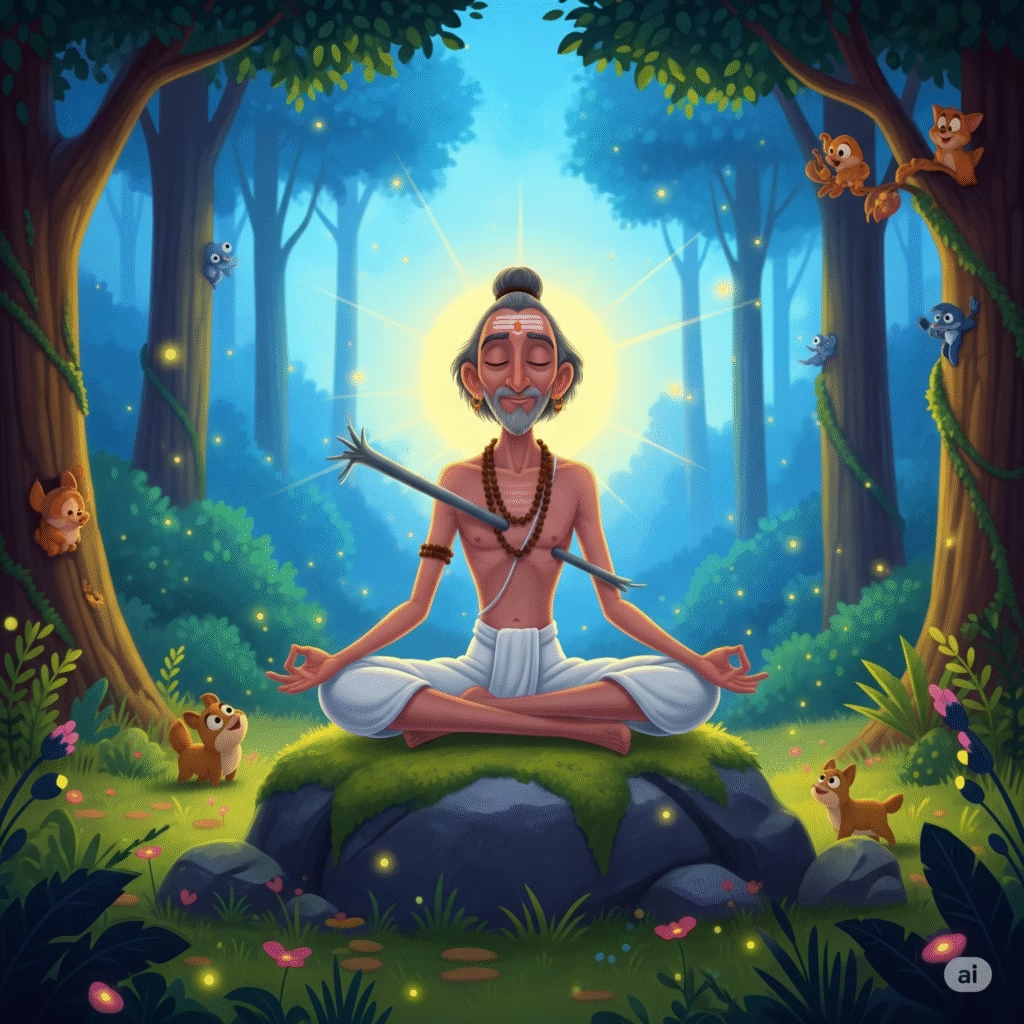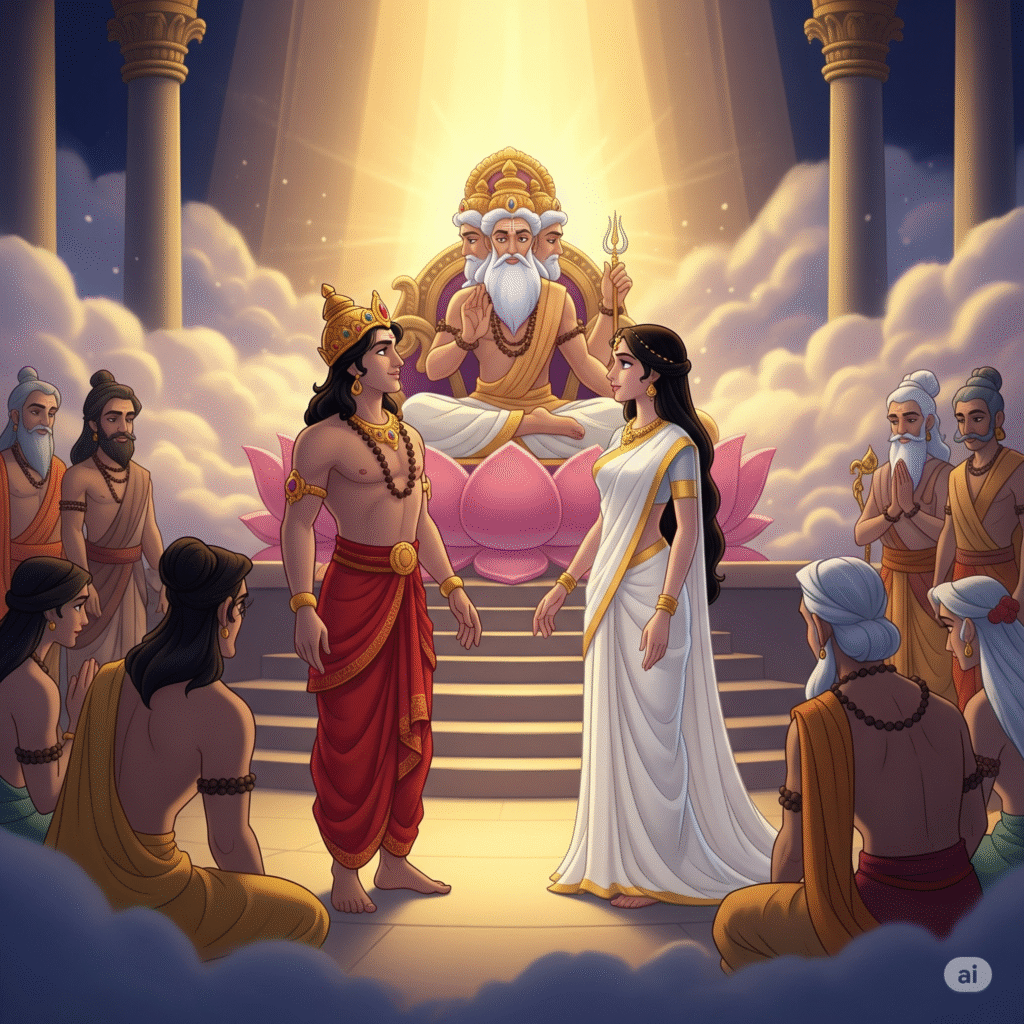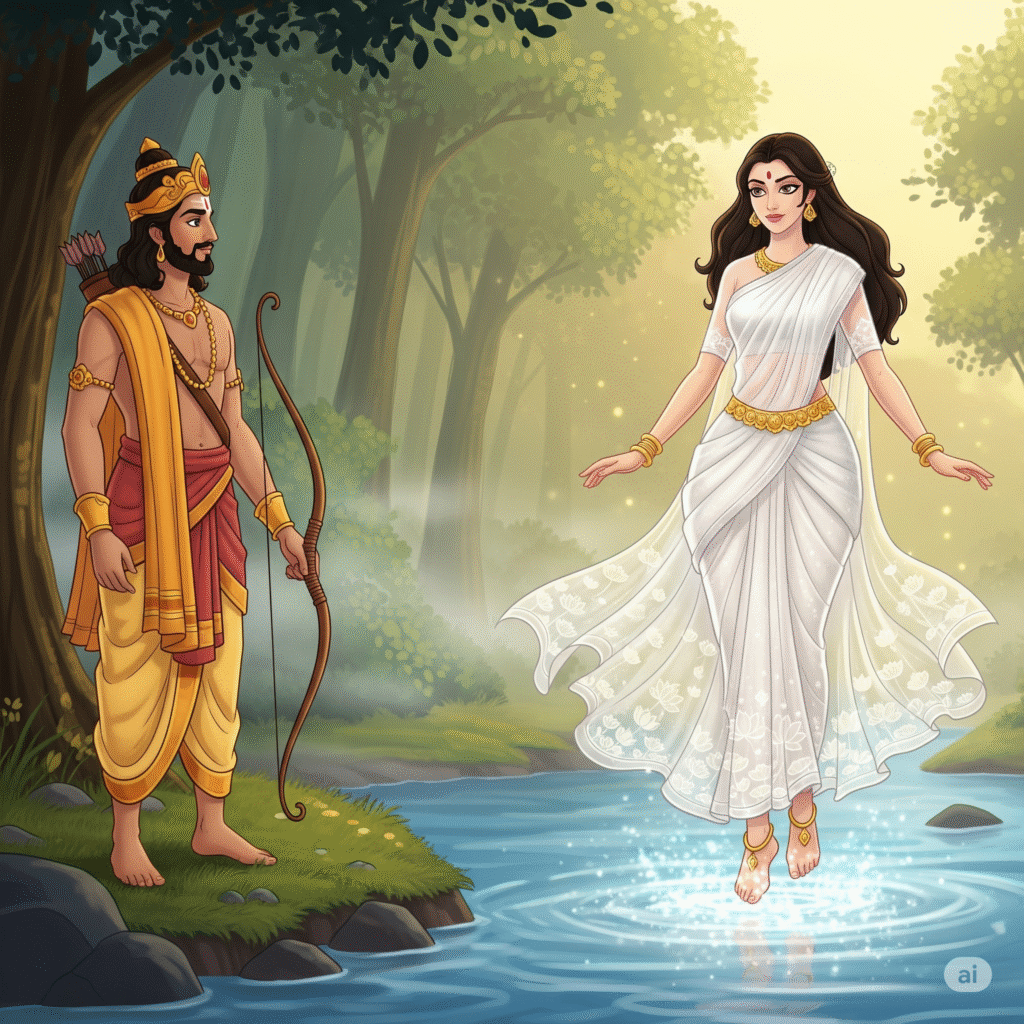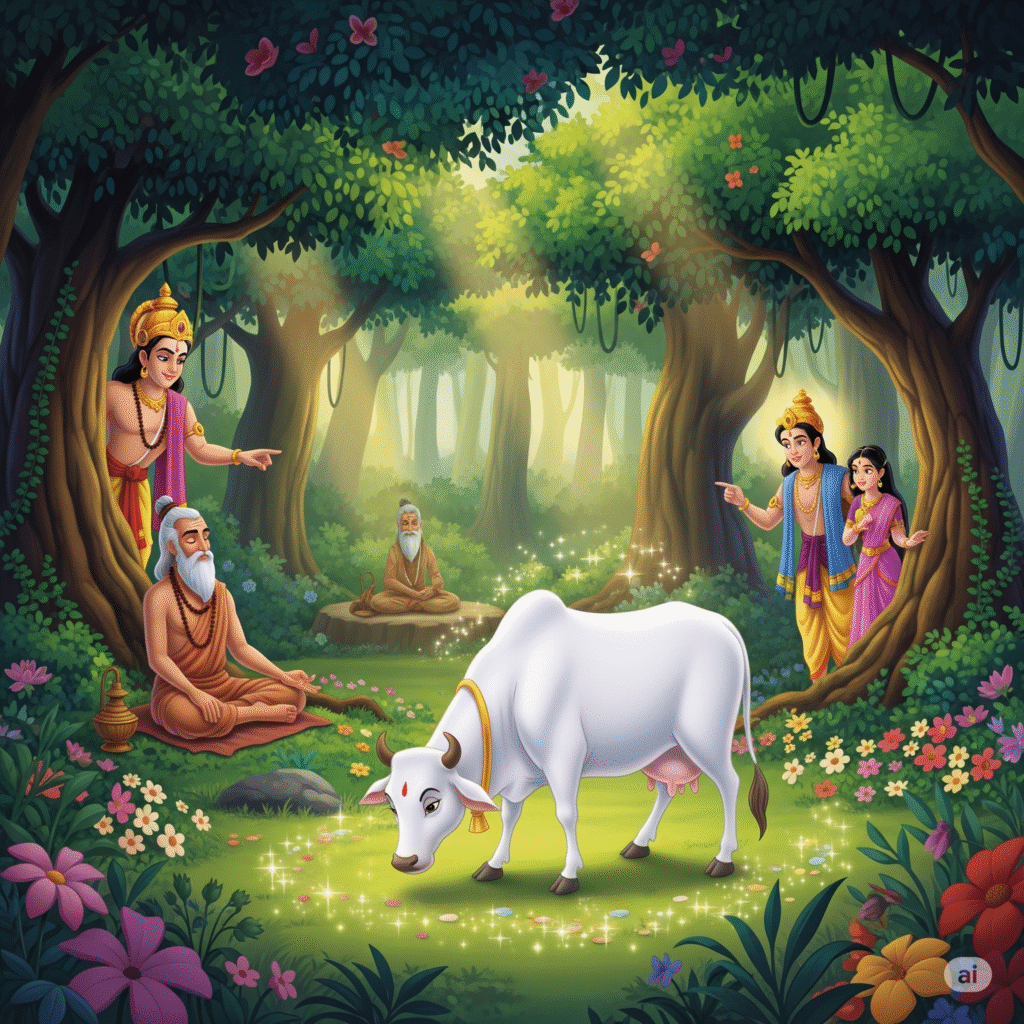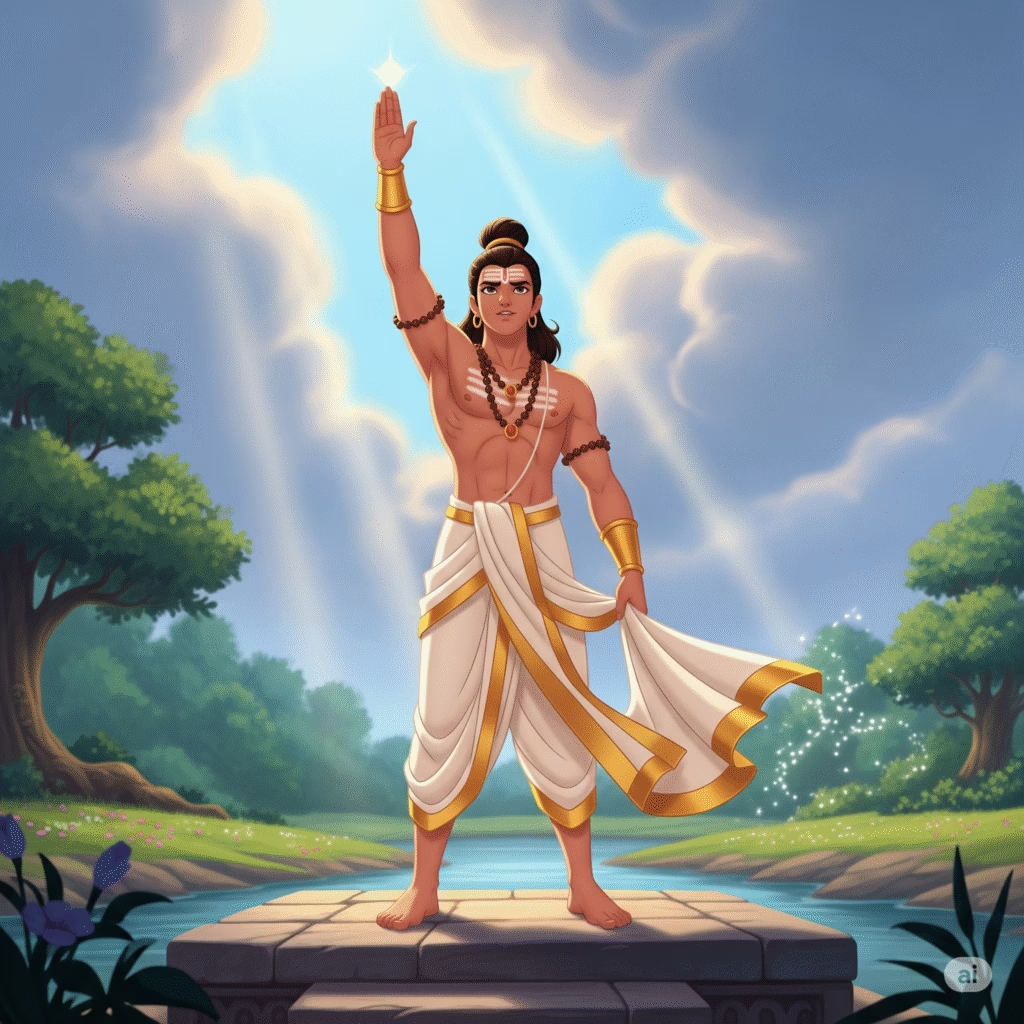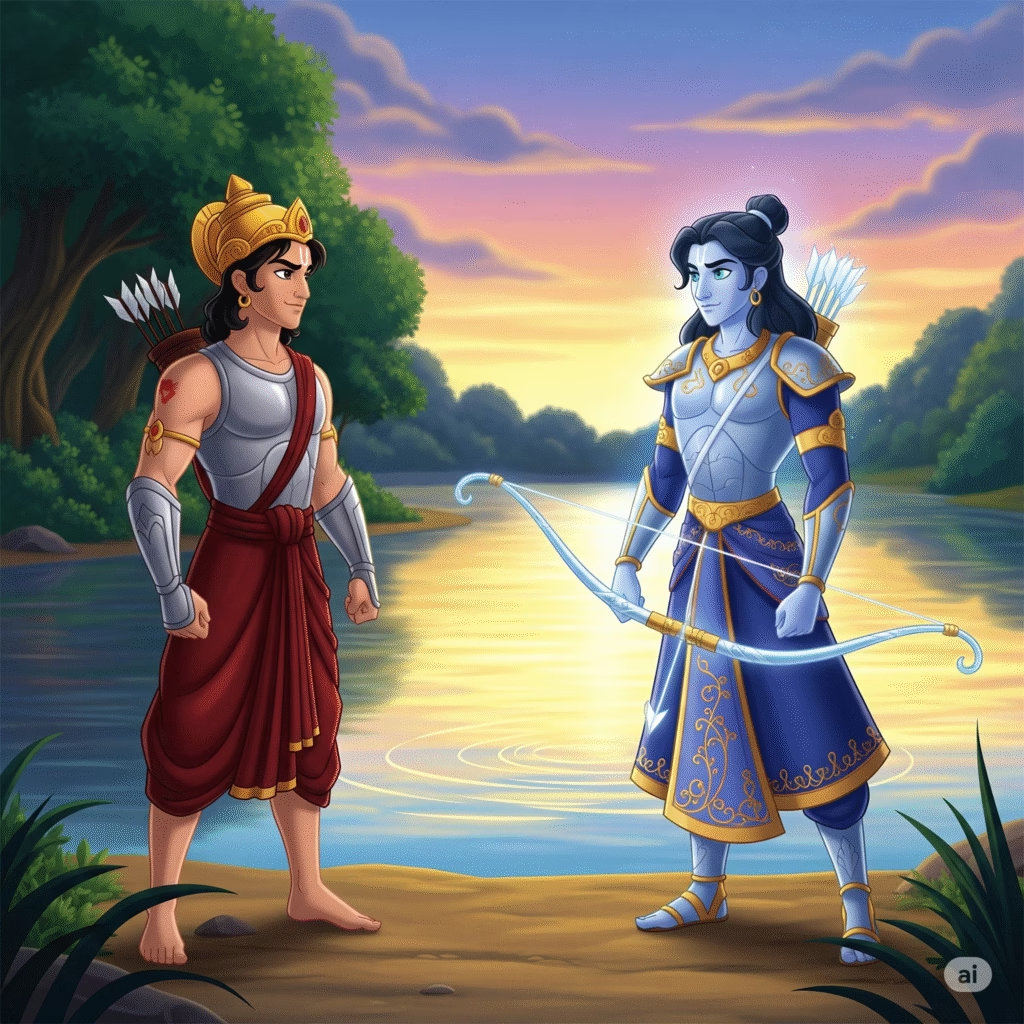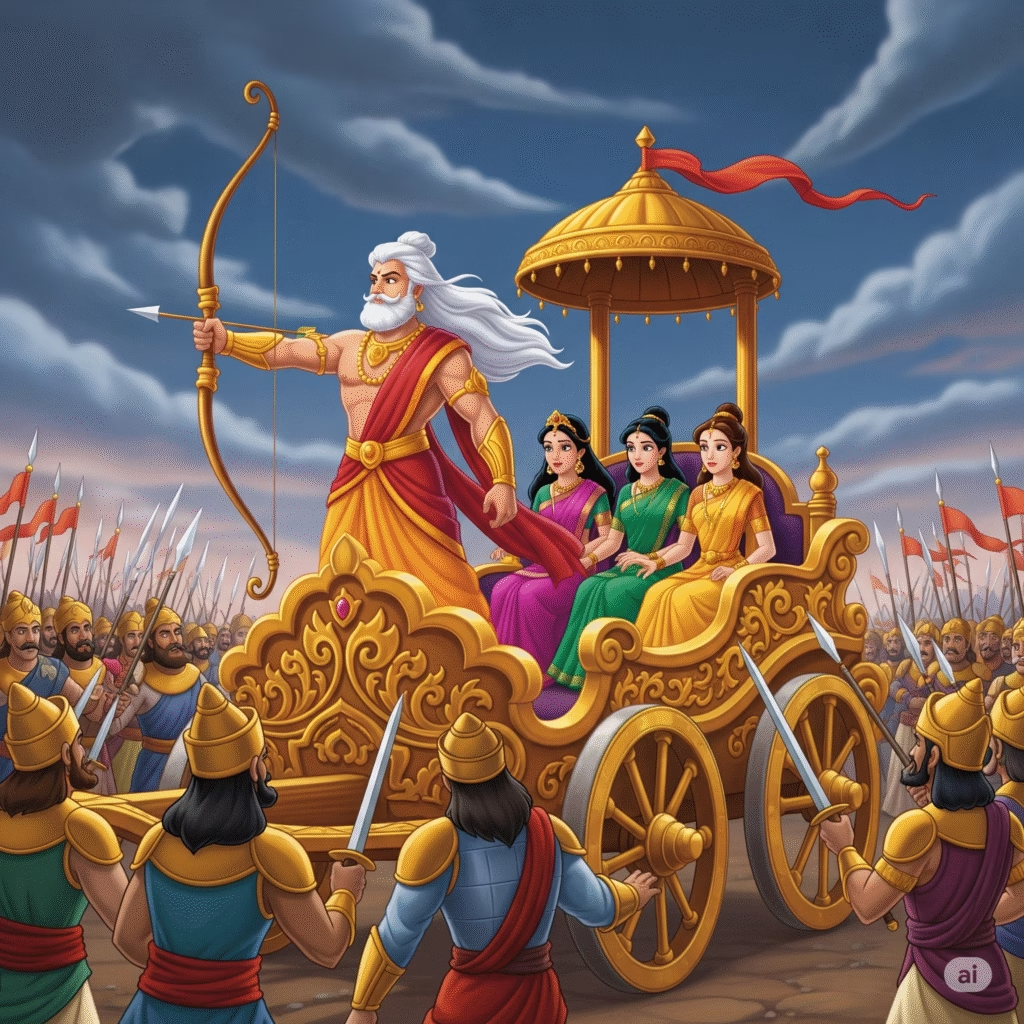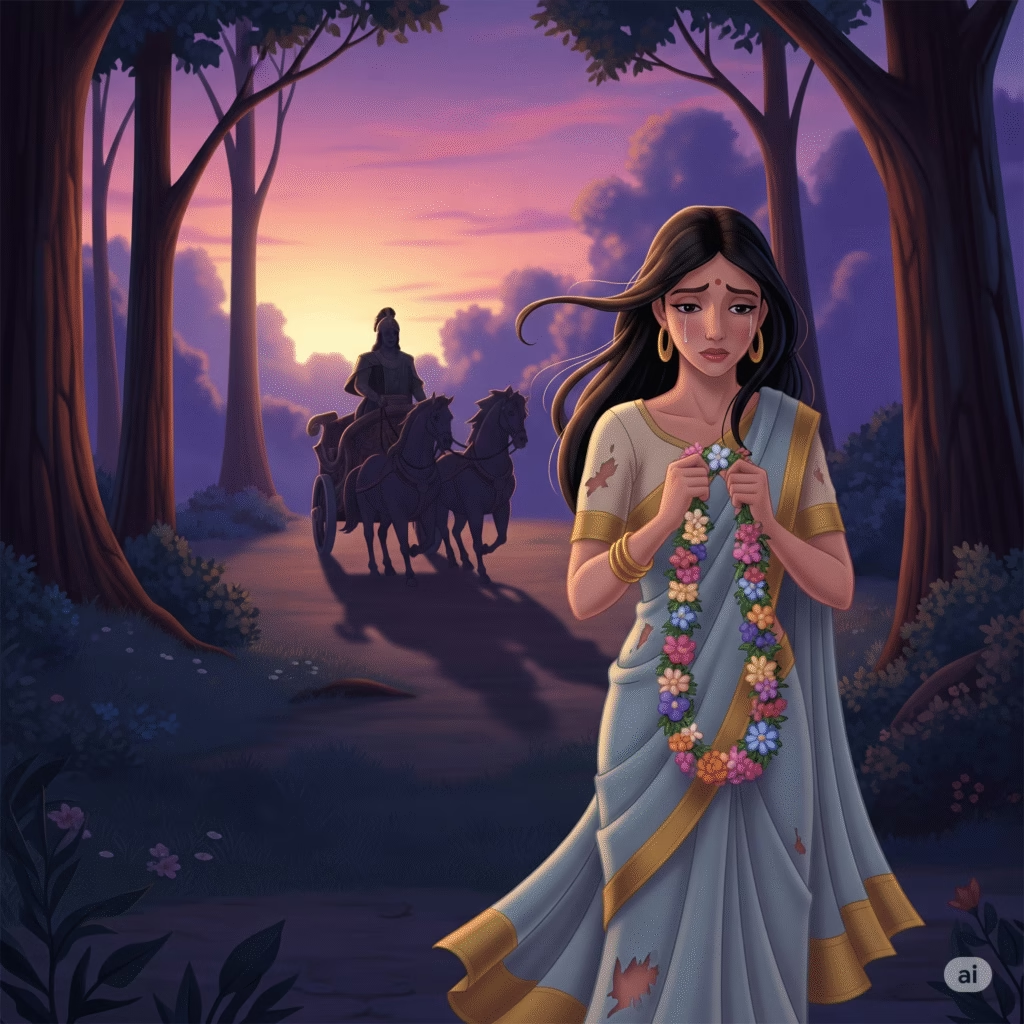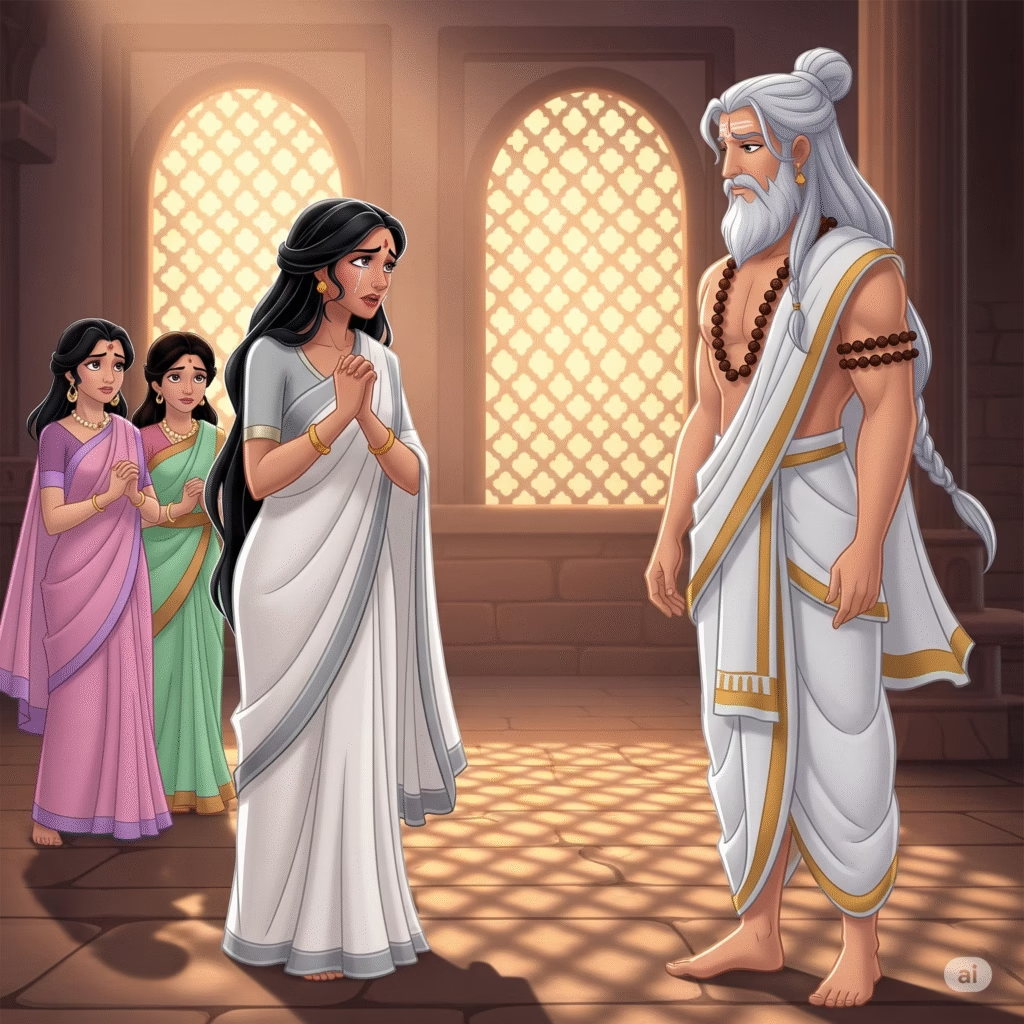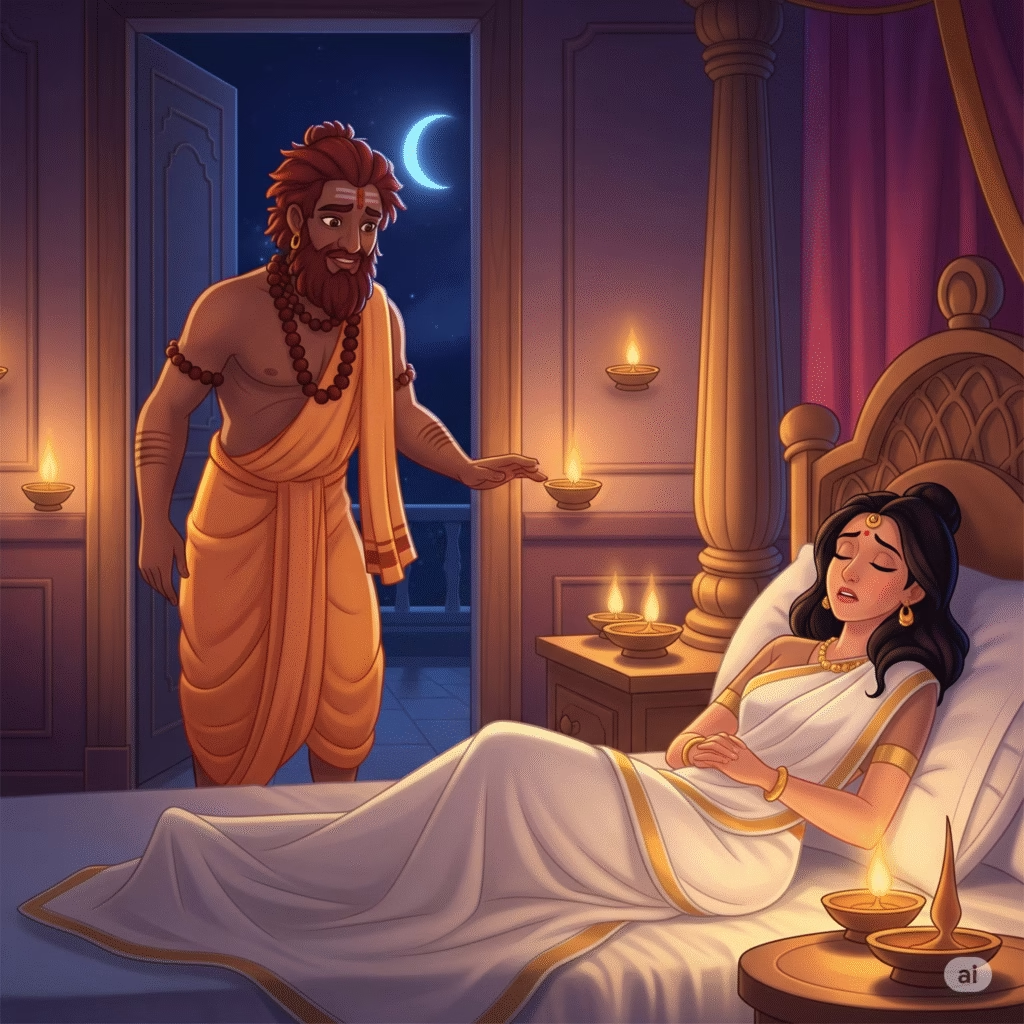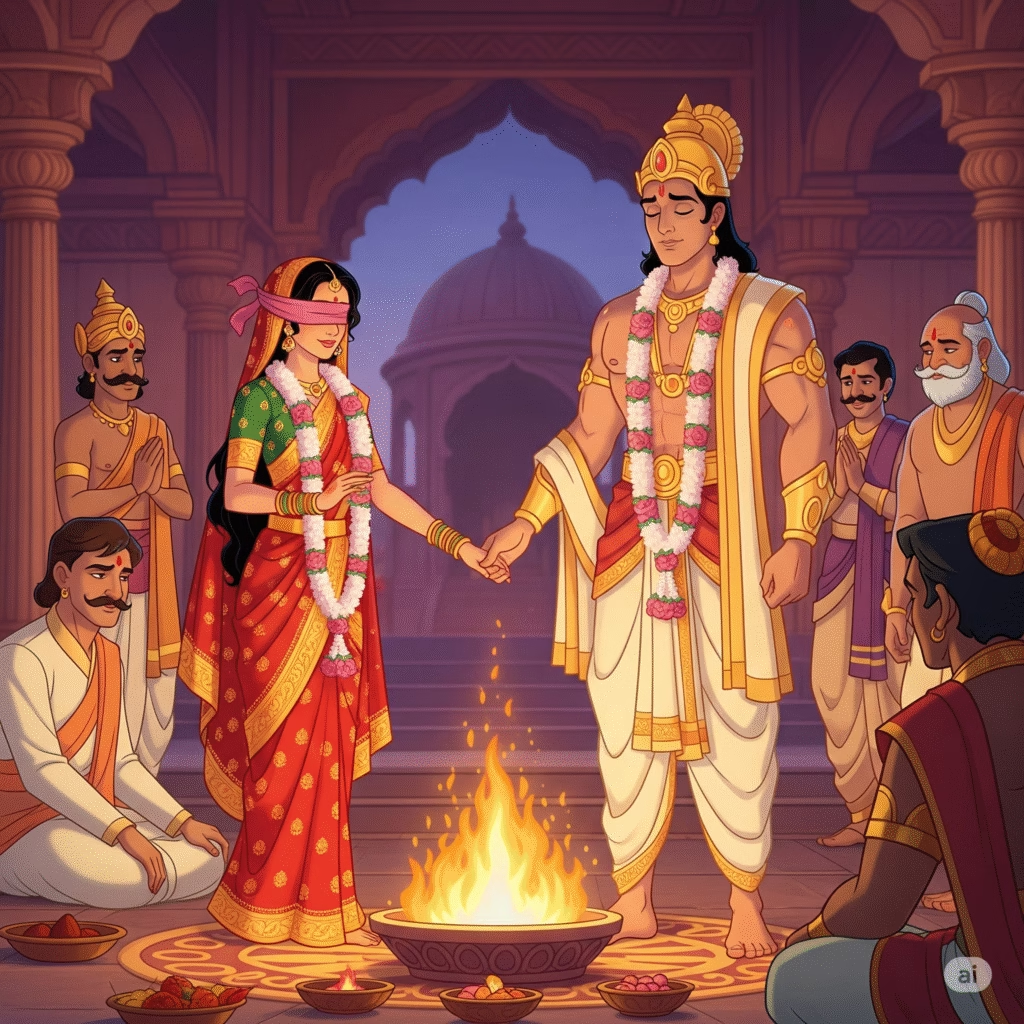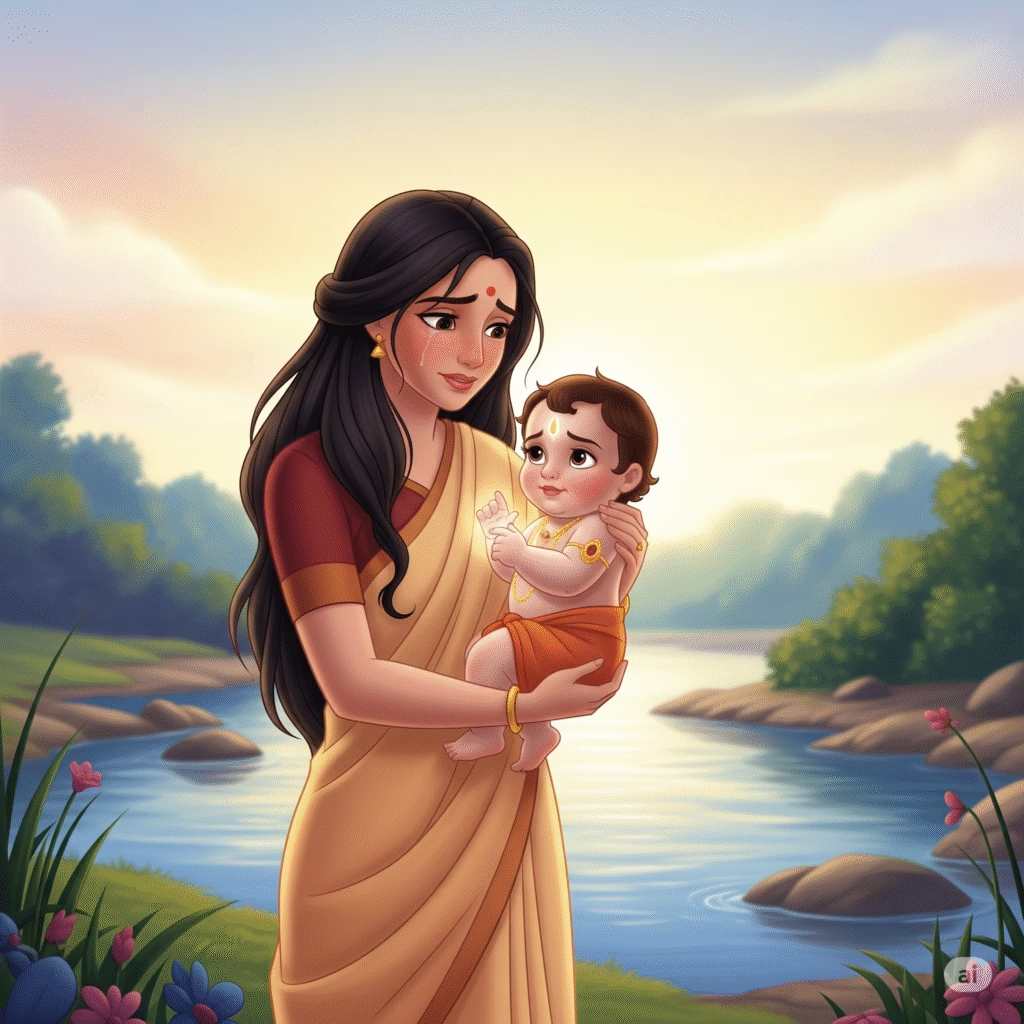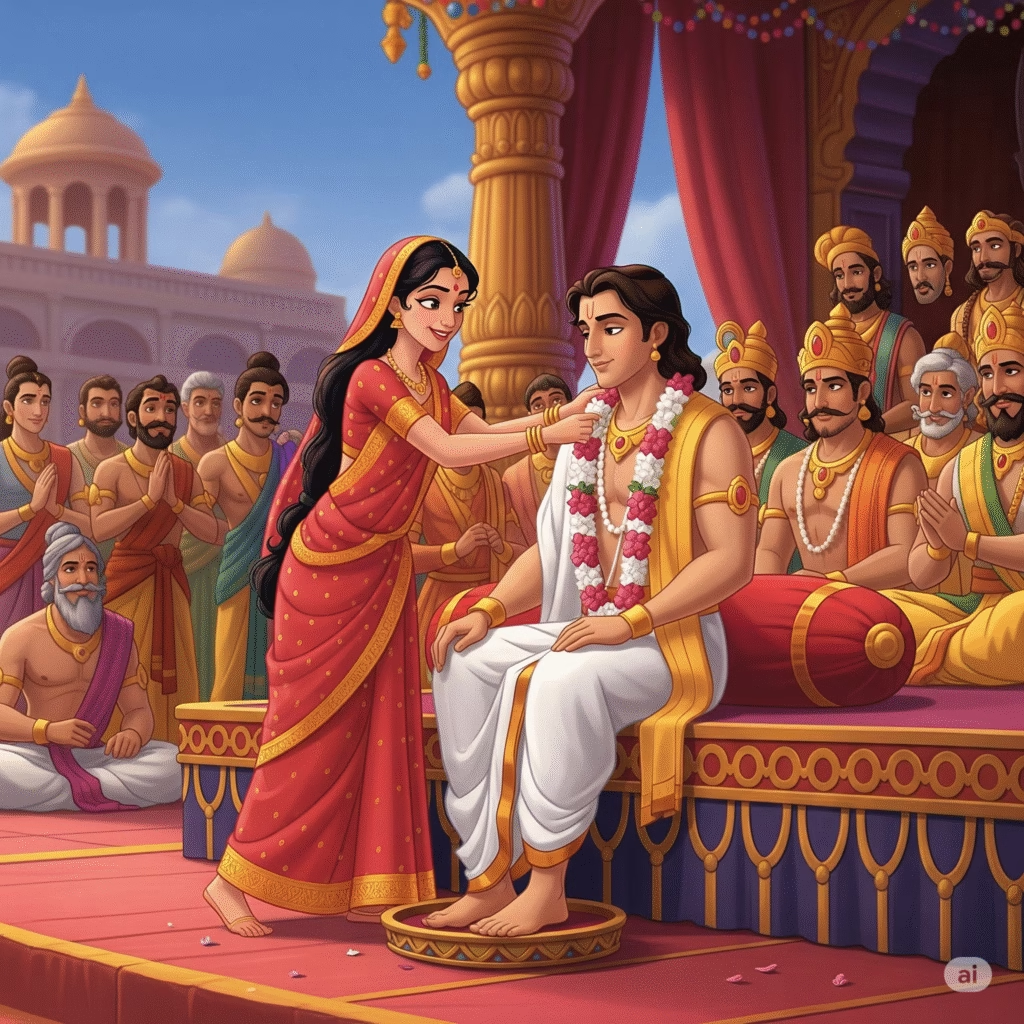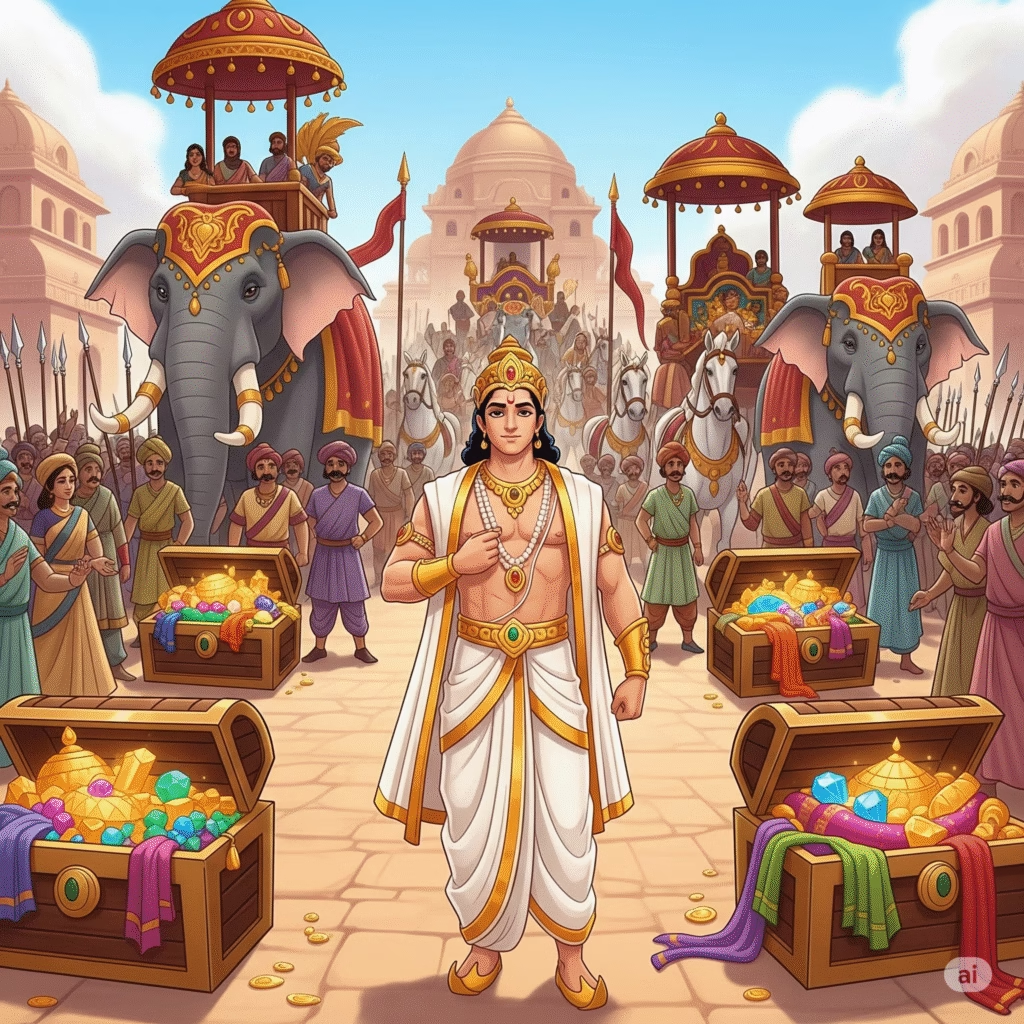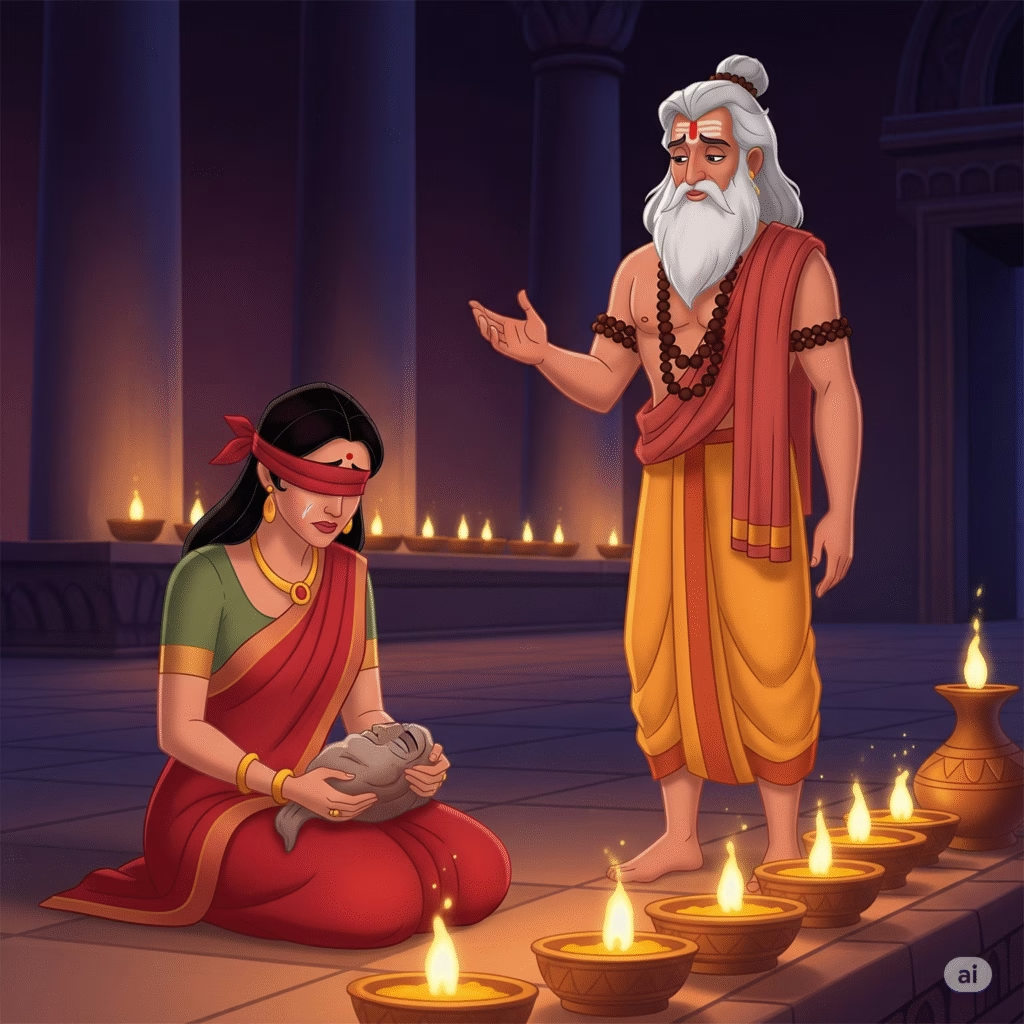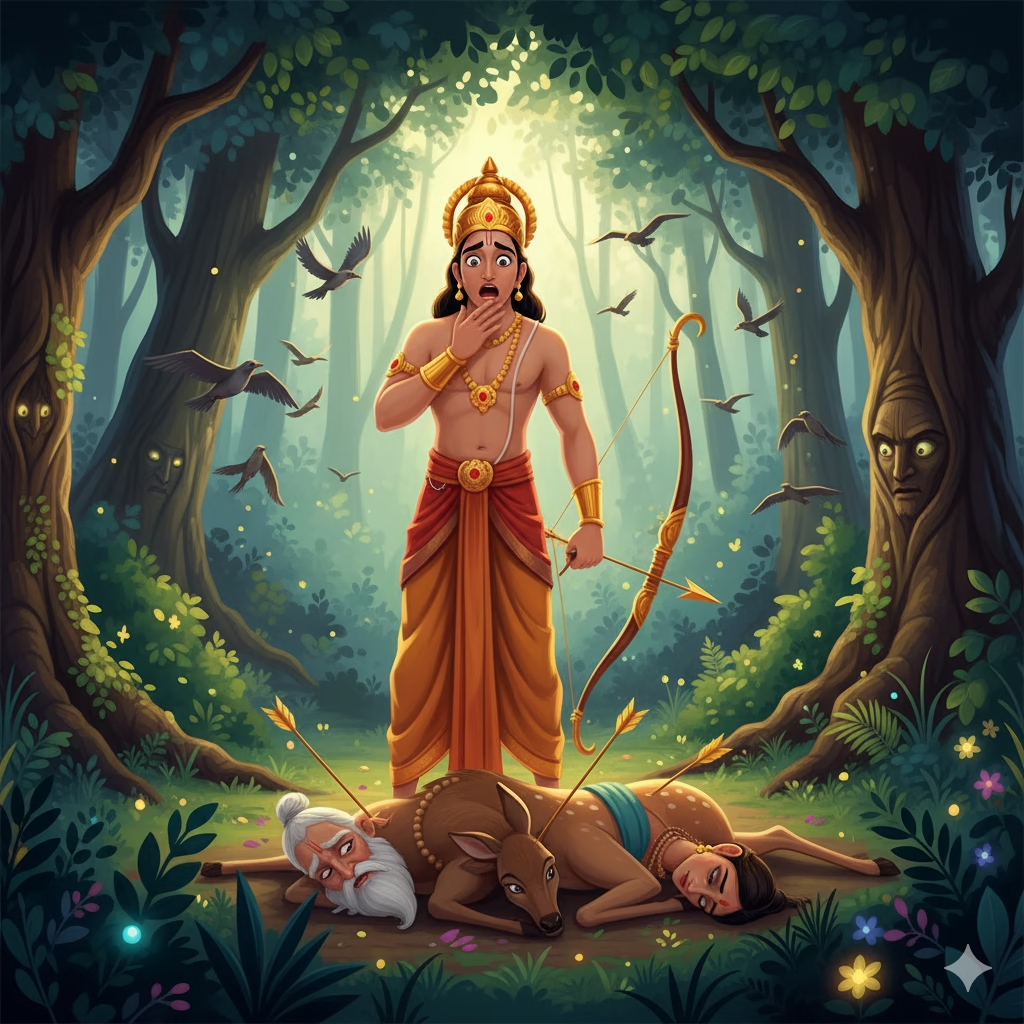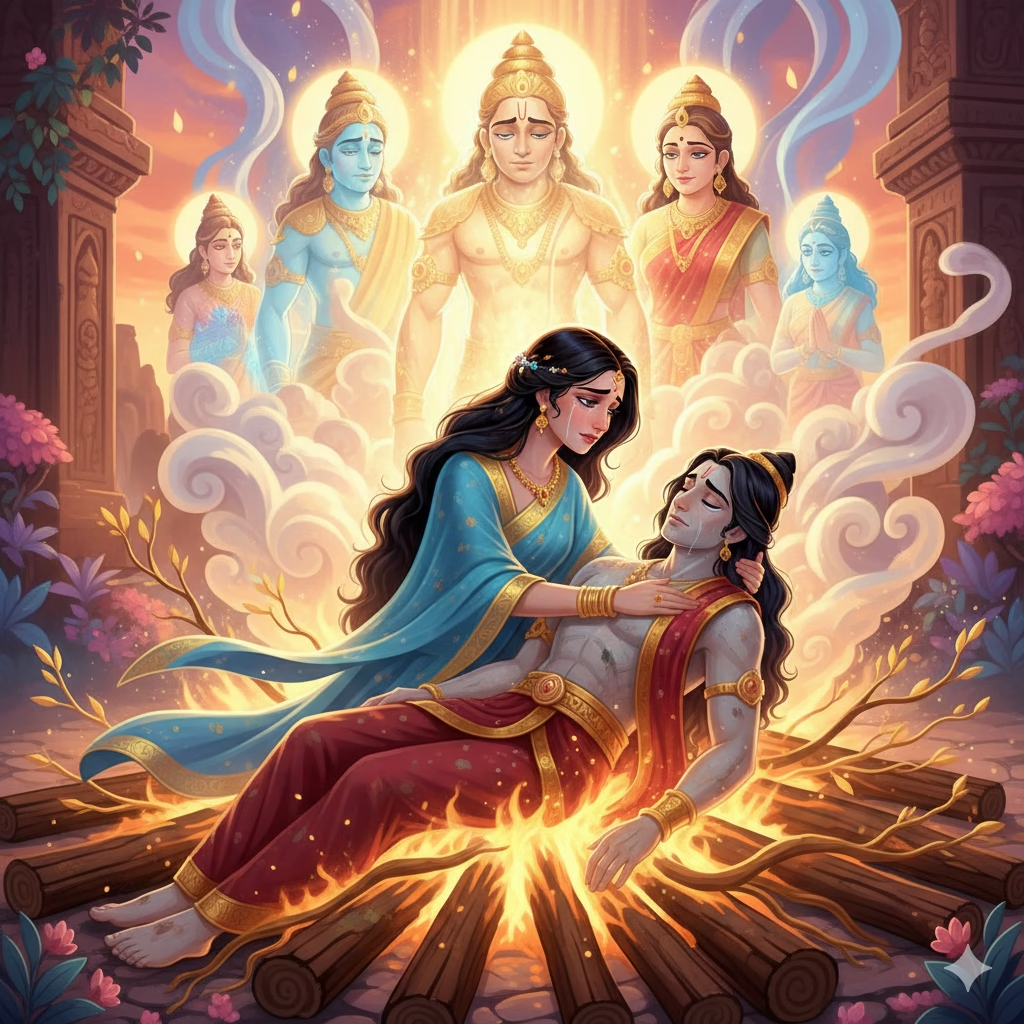Long before Hastinapur’s fate was written on battlefields, in a quieter era of tapasya, lived a sage named Mandavya. A man of unwavering silence, his arms raised skyward, he stood beneath a tree in deep penance—days melted into years. One day, a band of fleeing thieves, desperate to escape pursuing guards, stashed their loot in his āśrama. When the soldiers arrived, they suspected the silent sage of shielding them. Mandavya, still in mauna vrata, offered no defence. And so, without trial or inquiry, the guards arrested him and dragged him before the king. Blinded by suspicion, the ruler ordered a brutal punishment: the sage was impaled alive. Mandavya remained suspended on the spear—alive—in agony, yet still breathing, still meditating. Rishis from across the land, disturbed by the injustice, arrived in secret to ask the impaled sage, “O great one, what terrible sin has led you to this suffering?” His answer was heart-wrenching: “No one is at fault. There is no blame.”
Time passed. The king soon realised his mistake and repented. The guards were ordered to release the sage. Yet the spear could not be removed from his body—it had to be cut, and the fragment remained embedded within him forever. From then on, he was called Ani-Mandavya—”the one with the spike.” But the sage carried more than a spike in his body; he carried a question in his soul.
One day, he arrived at the divine court of Dharma, the god of justice, and saw Dharma seated on his celestial throne. But Mandavya was no longer just a sage—he was a seer of truth. With quiet fury, he demanded, “Tell me, O Dharma, what was my sin? What did I do to deserve impalement?” Dharma replied, “As a child, you once pierced a butterfly with a reed. That act of cruelty bore this fruit.” The silence that followed trembled with thunder. Mandavya’s voice did not rise, but his words shook the universe. “A child below twelve is not accountable by Dharmaśāstra. If you, the god of dharma, punished me for a deed committed in ignorance, you have failed dharma itself.” And with that, the sage did what very few in myth or reality dare to do—he cursed Dharma himself. “You shall be born as a mortal, in a śūdra womb, to learn the weight of unjust judgment. And from today, let it be known—no one below the age of fourteen shall be held sinful in this world.”
Thus was born the doctrine of age-bound moral responsibility, long before modern law could imagine it. And Dharma, bound by the very rules he upheld, accepted his curse. Dharma took birth in the mortal world as Vidura, the wise advisor of Hastinapur.
This story pierces through a difficult truth: that even righteousness must evolve, that blind justice is no justice, and that intent matters more than action when innocence is involved. In our own lives, we often carry judgments from childhood—our own or others’. We punish ourselves for mistakes made before we even understood the weight of right and wrong. But perhaps, like Ani-Mandavya, it’s time we speak to the “Dharma” within us and ask: Was that fair? Or am I still carrying a spear that should’ve never been thrust into me?
Journaling Prompt
- Is there a part of your past where you’ve judged yourself—or someone else—too harshly?
- Can you look at that moment through the eyes of compassion and maturity today?

